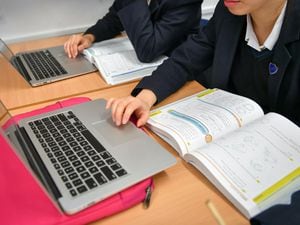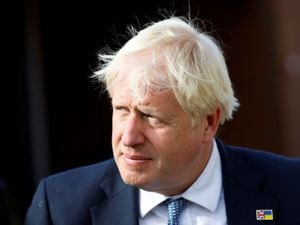Research shows disparities between private and state school pupils in lockdown
The lockdown has highlighted the growing educational disparities between privileged students and those from poorer backgrounds, according to the LSE.

Almost twice the proportion of private school students were receiving the equivalent of a full school day of teaching during lockdown than state school students, according to new research.
According to a study by the London School of Economics (LSE), the lockdown has highlighted the growing educational disparities between privileged students and those from poorer backgrounds.
The research suggested nearly three quarters (74%) of private school pupils were benefiting from full days of teaching during lockdown, compared with just 38% of pupils from state schools.
Private school pupils were five times more likely than state school pupils to have had at least four online lessons a day.
They were also four times more likely to have spent more than five hours a day on schoolwork.
According to the study, four in 10 pupils across the country are still not receiving the same number of teaching hours as they did before the pandemic hit, while about 2.5 million children across the UK received no schooling or tutoring at all during lockdown.
The findings, included in a new report published by LSE’s Centre for Economic Performance (CEP) on Monday, also included research on how coronavirus had impacted young people aged 16 to 25.
Academics from LSE and Exeter University found that young workers are twice as likely to have lost their jobs compared to older employees.
More than one in 10 people aged 16 to 25 have lost their job and just under six in 10 have seen their earnings fall since the coronavirus pandemic began, the survey of around 10,000 people suggested.
The report also found that university students from the lowest income backgrounds lost 52% of their normal teaching hours as a result of lockdown. Those from the highest income groups suffered a smaller loss of 40%.
More than two in three (68%) university students said they believed their future educational achievement will be affected by coronavirus and 63% said their wellbeing had been affected.
Professor Lee Elliot Major, professor of social mobility at the University of Exeter and report co-author, said: “We are seeing large and sustained losses in education for school pupils and university students in the wake of the pandemic, with those from lower-income backgrounds particularly suffering.
“The big danger for pupils is that they suffer permanent educational scarring – missing out on key grades that can shape future life prospects.”
Roberta, 16, from Harris Westminster Sixth Form, told the BBC’s Panorama programme: “During those six months it was just no education at all. I didn’t really get any support from my old school regarding my education. It’s been quite … a little bit stressful so far.
“I always had a dream of going to A-levels prepared, focused and ready. That break of six months did so much damage.
“I think coming into this school, I didn’t realise the disparity would be this big in the classroom. There are people that don’t know anything and people that know almost the whole content.”
A Department for Education (DfE) spokeswoman said: “Over 99% of schools have been open every week since term began, with the latest data showing over 7.3 million pupils attending to learn from brilliant teachers and spend time with friends.
“Our £1 billion Covid catch-up package will tackle the impact of lost teaching time as a result of the pandemic, including a £650 million catch-up premium to help schools support all pupils and the £350 million National Tutoring Programme for disadvantaged students.”
– BBC Panorama: Has Covid Stolen My Future? airs on Monday at 7.30pm on BBC One.





